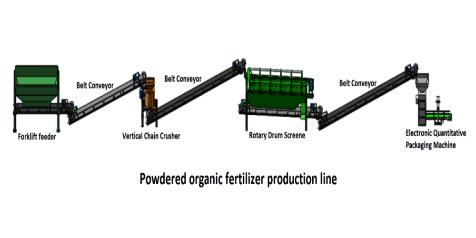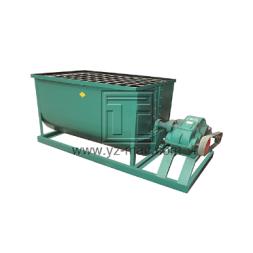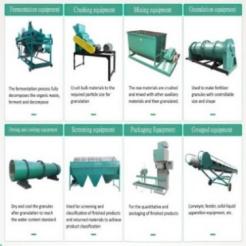New compost machine
In the pursuit of sustainable waste management practices, a new generation of compost machines has emerged. These innovative compost machines offer advanced features and technologies to streamline the composting process, enhance efficiency, and contribute to a greener future.
Cutting-Edge Features of New Compost Machines:
Intelligent Automation: New compost machines incorporate intelligent automation systems that monitor and control the composting process. These systems regulate temperature, moisture levels, and aeration, ensuring optimal conditions for microbial activity and accelerated decomposition.
Efficient Shredding and Grinding: Advanced shredding and grinding mechanisms in new compost machines break down organic waste materials into smaller fragments, increasing the surface area for microbial activity and expediting the composting process.
Odor and Emission Control: State-of-the-art compost machines are equipped with advanced odor and emission control systems. These systems utilize filters, biofilters, and bio-scrubbers to capture and neutralize odorous compounds and minimize air pollutants, ensuring a clean and odor-free composting environment.
Real-time Monitoring and Reporting: New compost machines are integrated with advanced monitoring systems that provide real-time data on temperature, moisture levels, pH, and other crucial parameters. Operators can track the composting progress and make necessary adjustments to optimize efficiency and quality.
Energy Efficiency: Many new compost machines prioritize energy efficiency through features such as variable speed controls, energy-saving motors, and heat recovery systems. These technologies reduce energy consumption and operational costs while minimizing the environmental footprint.
Benefits of New Compost Machines:
Faster Composting: The advanced features of new compost machines, such as efficient shredding, intelligent automation, and optimal environmental control, significantly accelerate the composting process. This results in shorter composting cycles and increased overall productivity.
Improved Compost Quality: The precision control systems in new compost machines ensure consistent composting conditions, leading to higher-quality compost with balanced nutrient content. This nutrient-rich compost can enhance soil health, fertility, and crop productivity.
Reduced Waste Volume and Landfill Diversion: By processing organic waste into compost, new compost machines help divert significant volumes of waste from landfills. This reduces the environmental impact of waste disposal and contributes to a circular economy by converting waste into a valuable resource.
Environmental Sustainability: New compost machines contribute to environmental sustainability by minimizing greenhouse gas emissions, controlling odors, and reducing reliance on chemical fertilizers. The production and use of high-quality compost from these machines promote sustainable agriculture, landscaping, and soil restoration practices.
Applications of New Compost Machines:
Municipal and Industrial Composting Facilities: New compost machines are well-suited for large-scale composting operations in municipal facilities and industrial settings. They can efficiently process organic waste from households, restaurants, agricultural activities, and food processing industries.
Agriculture and Horticulture: New compost machines find applications in agricultural operations, nurseries, and horticultural practices. They enable farmers and growers to transform agricultural residues, manure, and green waste into nutrient-rich compost that improves soil health and enhances crop yields.
Landscaping and Soil Remediation: The use of new compost machines in landscaping projects and soil remediation efforts allows for the efficient processing of green waste, construction debris, and soil amendments. The resulting compost aids in soil enrichment, erosion control, and the establishment of sustainable green spaces.
The advent of new compost machines marks a significant advancement in sustainable waste management. With intelligent automation, efficient shredding, odor control systems, and real-time monitoring capabilities, these machines offer faster composting, improved compost quality, waste volume reduction, and environmental sustainability. Their applications span across municipal facilities, industrial composting, agriculture, landscaping, and soil remediation.







